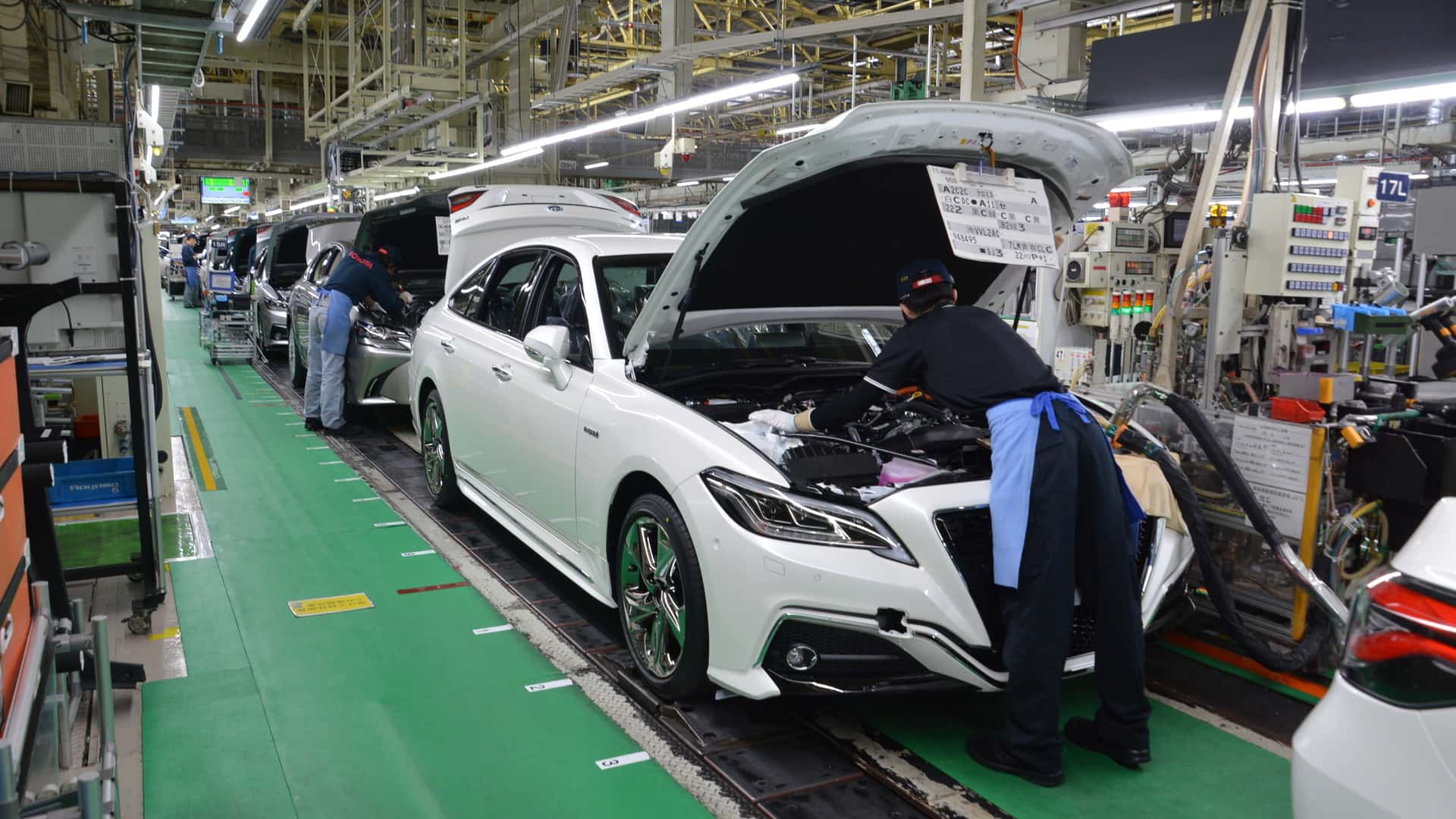
In a surprising move, Toyota announced a sweeping suspension of operations across all 14 of its assembly plants in Japan. This unexpected shutdown has brought domestic production to a complete and hopefully short-term standstill for the world’s leading automaker in terms of vehicle sales with 10.48 million units sold last year.
The catalyst behind this production paralysis is a malfunction within Toyota’s production system, Reuters reports. The glitch has not only disrupted the order of crucial components but has also raised concerns about the company’s operational infrastructure. Although the root cause is currently under scrutiny, preliminary assessments have ruled out the possibility of a cyberattack, as confirmed by a Toyota spokesperson to the online publication.
Commencing in the early hours of Tuesday (local time), Toyota initially suspended operations at 12 plants across its home market. Subsequently, the remaining two plants were also halted later in the day. The precise extent of the production output loss remains uncertain at this point but Reuters estimates that collectively, these assembly plants contribute to approximately one-third of Toyota’s global production output.
The repercussions of Tuesday’s incident extend beyond Toyota’s immediate operations. One of its affiliate companies, Toyota Industries, was compelled to partially suspend operations at two engine plants due to the ripple effects of the automaker’s malfunction.
Notably, this isn’t the first instance of Toyota facing operational disruption. The company encountered a similar setback last year when a cyberattack on a supplier’s network led to a temporary cessation of operations. Back then, Toyota managed to resume production by utilizing an alternative network.
This new production interruption is a stark contrast to Toyota’s recent progress in rebounding from challenges posed by semiconductor shortages. According to data obtained by Reuters, the company had managed to achieve a 29 percent surge in production during the January-June period, marking its first noteworthy increase in a span of two years.
- SEO Powered Content & PR Distribution. Get Amplified Today.
- PlatoData.Network Vertical Generative Ai. Empower Yourself. Access Here.
- PlatoAiStream. Web3 Intelligence. Knowledge Amplified. Access Here.
- PlatoESG. Automotive / EVs, Carbon, CleanTech, Energy, Environment, Solar, Waste Management. Access Here.
- PlatoHealth. Biotech and Clinical Trials Intelligence. Access Here.
- ChartPrime. Elevate your Trading Game with ChartPrime. Access Here.
- BlockOffsets. Modernizing Environmental Offset Ownership. Access Here.
- Source: https://www.motor1.com/news/683994/toyota-suspends-japanese-production-due-system-failure/
- :has
- :is
- :not
- 10
- 12
- 14
- 29
- a
- About
- According
- Achieve
- across
- Affiliate
- All
- also
- alternative
- Although
- an
- and
- announced
- approximately
- AS
- Assembly
- assessments
- At
- back
- behind
- Beyond
- brought
- but
- by
- Catalyst
- Cause
- challenges
- collectively
- Companies
- company
- compelled
- complete
- components
- Concerns
- CONFIRMED
- content
- contrast
- contribute
- crucial
- Currently
- Cyberattack
- data
- day
- Disruption
- Domestic
- due
- during
- Early
- effects
- Engine
- estimates
- extend
- extent
- facing
- false
- First
- For
- from
- glitch
- Global
- had
- Have
- Home
- Hopefully
- HOURS
- HTTPS
- immediate
- in
- incident
- Increase
- industries
- Infrastructure
- initially
- instance
- isn
- ITS
- Japan
- Japanese
- jpg
- Last
- Last Year
- later
- leading
- Led
- local
- loss
- managed
- Market
- marking
- million
- move
- network
- New
- noteworthy
- obtained
- of
- on
- ONE
- One-third
- online
- only
- operational
- Operations
- order
- out
- output
- percent
- period
- plants
- plato
- Plato Data Intelligence
- PlatoData
- Point
- posed
- possibility
- precise
- Production
- Progress
- Publication
- raised
- recent
- remaining
- remains
- repercussions
- Reports
- resume
- Ripple
- root
- ruled
- s
- sales
- scrutiny
- semiconductor
- short-term
- shortages
- shutdown
- similar
- sold
- span
- spokesperson
- stark
- Subsequently
- supplier
- surge
- surprising
- Suspend
- suspended
- suspension
- system
- T
- temporary
- terms
- that
- The
- the world
- then
- These
- this
- time
- to
- toyota
- true
- Tuesday
- two
- Uncertain
- under
- Unexpected
- units
- Utilizing
- vehicle
- was
- were
- when
- with
- within
- world
- year
- years
- zephyrnet












